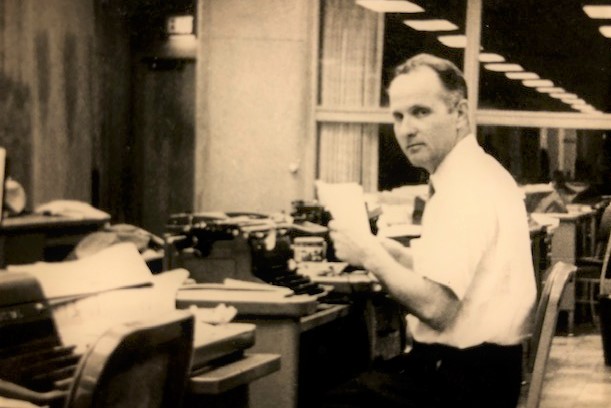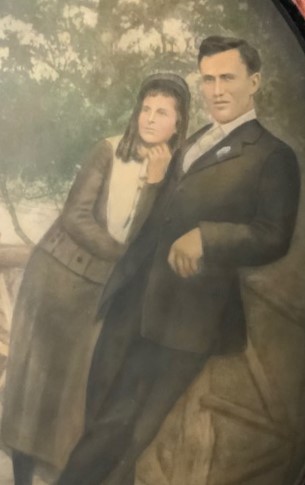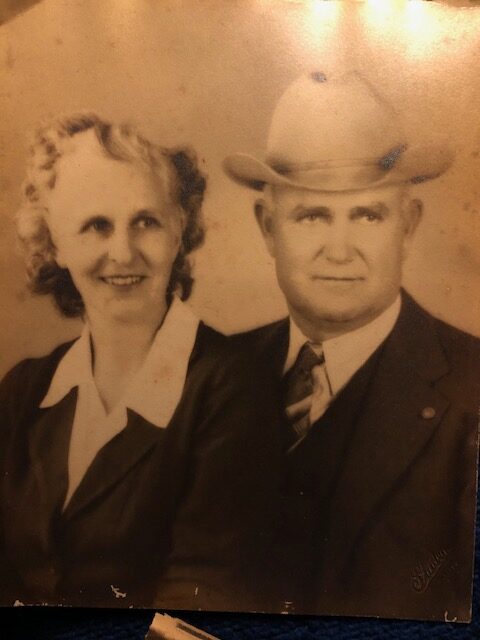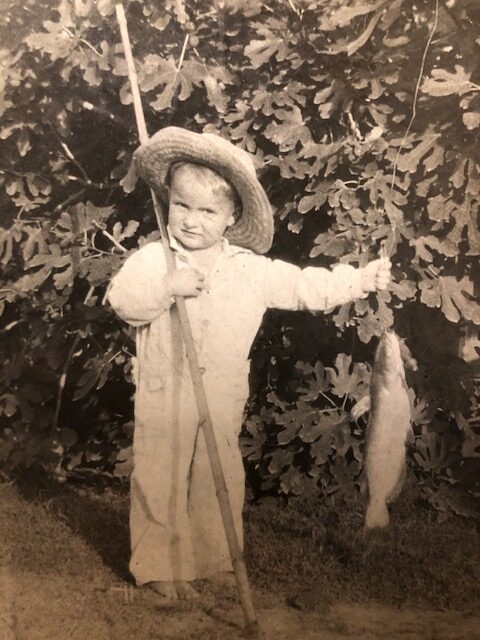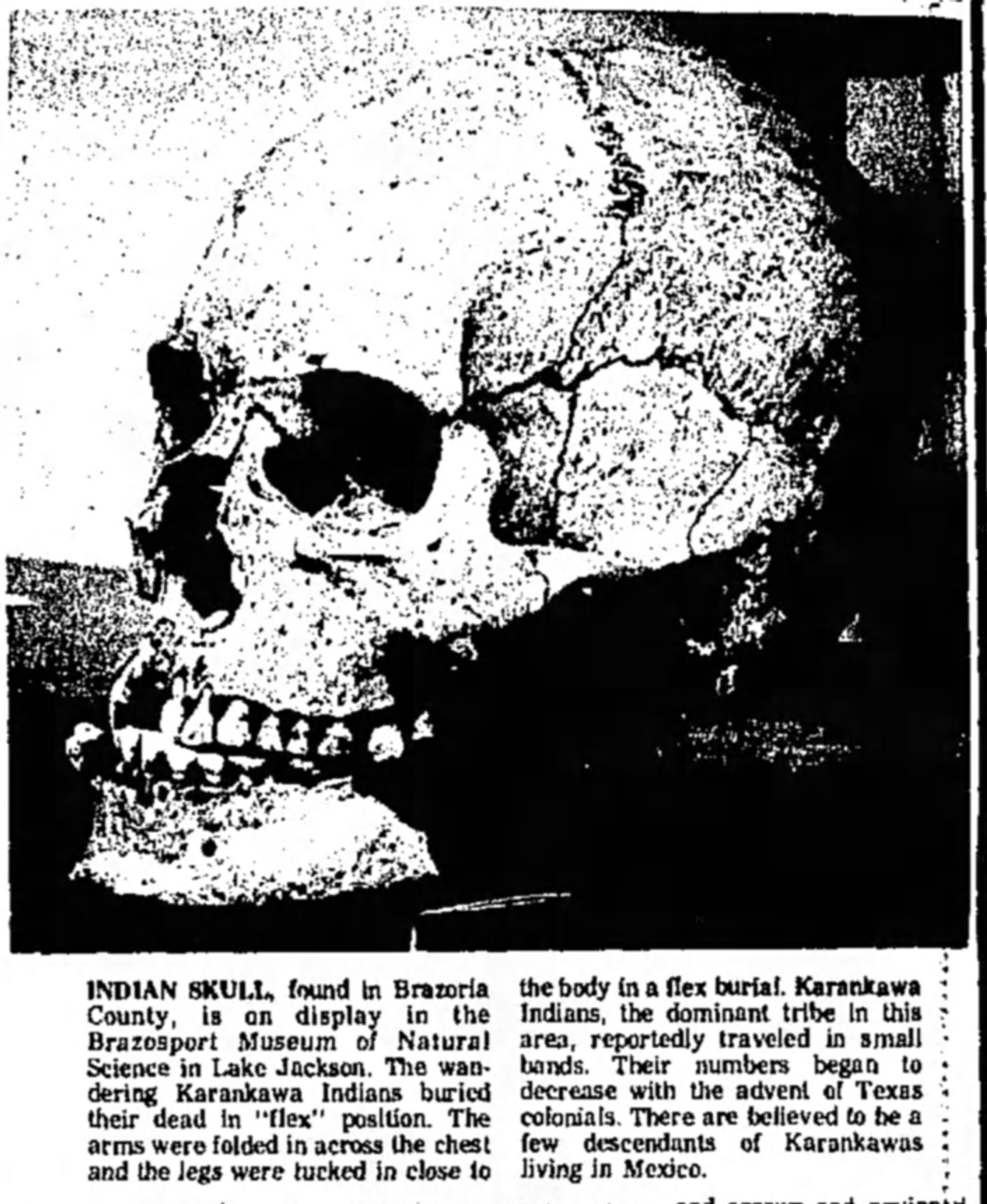To preserve the rich history of Flour Bluff, The Texas Shoreline News, will run historical pieces and personal accounts about the life and times of the people who have inhabited the Encinal Peninsula. Each edition will feature the stories gleaned from interviews and writings from people who remember what it was like to live and work in Flour Bluff in the old days. You won’t want to miss any of these amazing stories.
The following is a piece written by Bill Duncan May 29, 1985. His daughter, Tracy Duncan, pulled it from a collection of her father’s writings and offered it to be shared with all those who love Flour Bluff. It is the story of how the Duncan family came to Flour Bluff and how they left their mark on the area. Many of the people about whom Bill writes have passed, but he has kept them alive in his local newspaper column.
A tarpon scale big as a silver dollar was a factor in Ed Duncan’s decision to move his family from Coleman County in West Texas to the Texas Gulf Coast.
The family was large, and the glowing picture of plenty that the friend painted in his letter sent from Corpus Christi along with the scale was almost enough to convince Ed of the practicality of the move. But an overriding reason was Ed’s health. He wasn’t sure West Texas was too healthy for him anymore.
Ed Duncan had been foreman of the huge John Slaughter Ranch south of Lubbock for about 20 years when the Homestead Act was passed. Slaughter, through Ed, had all his cowhands homestead acreage around waterholes on the rangeland he had pre-empted. The plan was to buy up these parcels from the cowboys after they had proved up their claims and gotten clear title. The plan worked that way except that Ed bought much of the land in his own name.
After that he didn’t feel too popular.
He moved to Nueces County in 1908, buying about 2,000 acres in the central area of the Flour Bluff peninsula. The first purchase was about 1,000 acres from Henrietta M. King, widow of the founder of the King Ranch. Another 1,000 acres was purchased from a man named Timmins who had started an ambitious irrigation project on the banks of Oso Creek. The purchases gave the Duncans connected land from Laguna Madre to the Oso. Duncan also developed some residential property in Corpus Christi, primarily on Duncan, Ruth, and Mary Streets.
He was a trustee in 1908 of the Flour Bluff School District No. 22 (county school district) and donated the original plot of land for the school, located at the corner of what is now Waldron Road and Purdue Street. The Duncan Family Cemetery is located near Purdue and Debra Lane in Flour Bluff.
The Duncan Family originated in Scotland. Family legend says that two brothers immigrated to the American Colonies before 1750. John Duncan settled in the Province of Virginia and George Duncan settled in Pennsylvania.
Ed Duncan was the son of William Edward Duncan who was born in Lincoln County, Mo., April 14, 1836. William Duncan came to Texas as a teenager. He joined Capt. Ross’ Texas Rangers in 1860 and was in a battle with the Comanche Indians in which Cynthia Ann Parker was recaptured after growing up with the Indians and marrying a Comanche chief (She and her brother had been captured from their home as children. Her father was the founder of Parker County).
Ed was born March 1, 1868, in Lincoln County, Mo. He died in Corpus Christi, Dec. 29, 1940. His wife, Minerva Ellen, was also a Duncan before marriage although no evidence is available that they were related. They were married Feb. 28, 1895, in Bosque County, Texas. She died June 9, 1921 in Nueces County.
Their children are:
- Sidney Edward Duncan, born March 9, 1896, in Coleman County, Texas. He now lives in Rockport, Texas with his wife Ruth (for whom Ruth St. in Corpus Christi is named).
- Ella Maud Cowart, born August 17, 1897. Died in Corpus Christi in 1984.
- Mamie Grace Graham, born June 27, 1900, in Coleman County. Died in Corpus Christi Feb. 1, 1939.
- Robert William Duncan, born, March 21, 1903 in Coleman County. Died at Mathis in 1975.
- Wesley Ray Duncan, born Oct. 13, 1905 in Lynn County, Texas. Died in Corpus Christi Oct. 24, 1981.
- Jessie Mae Johnson, born Oct. 13, 1905 in Lynn County, Texas. Lives in Corpus Christi (Flour Bluff).
- Louie Effie Johnson, born May 29, 1907 in Lynn County, Texas. Lives in Boerne, Texas.
- Howard James Duncan, born May 11, 1909, in Nueces County. Lives in Mesquite, Texas.
- David Francis Duncan, born March 2, 1912, in Nueces County. Died in Corpus Christi Sept. 26, 1966.
- Walter Lewis Duncan, born July 28, 1913, in Nueces County. Lives in Arkansas.
- Bailey Duncan, born July 28, 1919 in Nueces County. Lives in Corpus Christi (Flour Bluff).
- Many other descendants live in the Corpus Christi area and South Texas
Update from Wayde Duncan: “Jessie Mae died 10/19/1996, Louie died 10/17/2000, Howard died 9/27/1998, Walter died 11/3/1997. Bailey is Joe Bailey Duncan, my Dad, who passed away 6/15/1989. Sidney Edward died 1/24/1988. Most are buried in the Duncan Cemetery.”
ABOUT THE AUTHOR: Bill Duncan, owner of Duncan Cemetery and former managing editor of the Corpus Christi Times, died Friday, March 10, 2006 at the age of 80.
Born March 22, 1925 in the West Texas town of Tahoka, in Lynn County, Duncan spent his early childhood in Corpus Christi, on Padre Island and in Flour Bluff. He was one of a handful of students who attended the first Flour Bluff School on land which was donated by his grandfather, Edward Sidney Duncan, a one-room building which stood near what is now the corner of Hustlin’ Hornet and Debra Lane. In 1937, near the end of the Depression, the family moved to a ranch at Three Rivers. In high school he was football quarterback and a soda jerk. A skilled storyteller, Duncan often wrote about his early years in a weekly column he wrote for the Times.
Duncan served as a pilot in the U.S. Army Air Corps for 30 months during World War II. After the war, he studied journalism and architecture at Texas College of Arts and Industries in Kingsville, now Texas A&M Kingsville. He was graduated in 1949.
He later worked as a reporter and editor for the Wharton Journal. He also worked as a reporter for the San Antonio Express News and editor of the El Campo Citizen.
Duncan farmed and ranched in Fort Bend and Wharton countries for ten years. During those years, Duncan wrote articles for the Progressive Farmer, and he served on the school board, defying those who wanted to resist integration.
“He was a top-notch citizen,” said Jack Quirey, 80, of East Bernard. “We served on the school board together. He was a good man.”
Duncan continued fly as a private pilot, operating an aerial crop-dusting service while he farmed in East Texas and later flying clients across Texas as a realtor with Jim Fuller Flying Realtors of Houston.
He joined the Caller-Times as a reporter in 1961. He worked as a Sunday editor, Times news editor, Caller-Times city editor, executive city editor, and Times city editor before becoming managing editor in 1977.
After retiring from the newspaper in 1986, Duncan designed and built a showplace on the Intracoastal, including an innovative floating dock system to withstand storms.
In 1991, he bought the Duncan Cemetery in Flour Bluff from four cousins. The cemetery was established in 1908 by Edward and Minerva Ellen Duncan, his grandparents. Duncan worked to expand and beautify the cemetery, and in 2001 it became the first Nueces County to be designed a Historic Texas Cemetery by the Nueces County Historical Commission.
_________________________________________________________________
The writer welcomes all corrections or additions to the stories to assist in creating a clearer picture of the past. Please contact the editor at [email protected] to submit a story about the early days of Flour Bluff.
